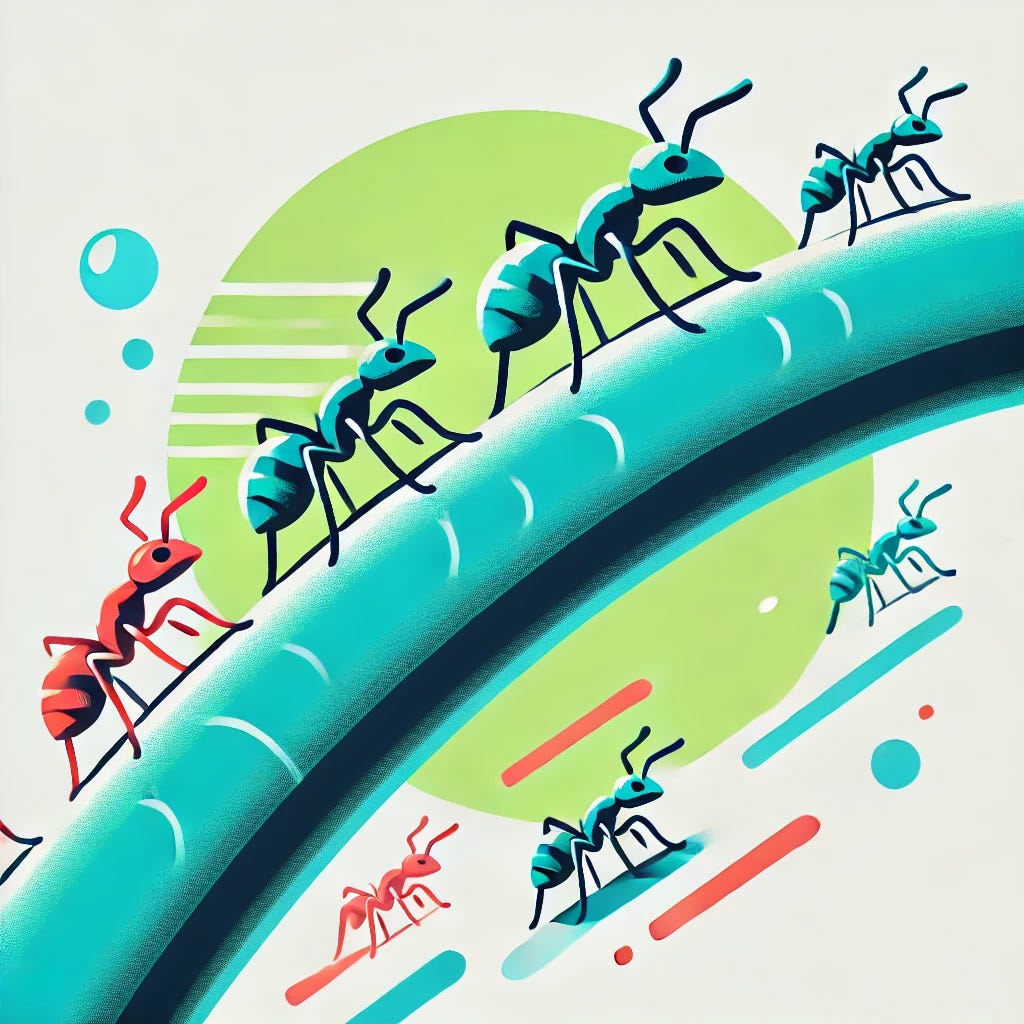Plato’s contributions to human thought are profound.
His writings on philosophy are considered to be foundational, and they’ve helped to shape western culture ever since. He also founded the Academy, a prototype for today’s universities. His views on the nature of reality are even referenced by quantum physicists today.
Plato had his darker side, too. He had an authoritarian view on governance, regarding the people as unworthy of making decisions, and spoke in favor of strong ethnic ties to nationalism, something fascists would use to justify their beliefs.
Among all this complexity lay a plethora of brilliant analogies, one of Plato’s superpowers. Plato loved to collect these: he hinted that shadows on the wall of the cave are all we see of reality, compares the governance of the state to navigating an enormous ship, and even compares sunlight to understanding.
One of my favorites from among these analogies is from a quote Plato attributes to his teacher, Socrates. This isn’t altogether unusual—ancient Greek writers would often express a point of view through the “voice” of someone else, where in reality the writers themselves wanted to put these ideas out into the world. To that end, I really don’t know if Plato himself said this, or if Socrates did:
We who live between the Pillars of Herakles and Phasis inhabit some small part of it around the sea, just like ants or frogs around a pond.
Socrates in Plato's Phaedo (109a-b)
When Plato wrote about those who lived between the Pillars of Herakles and Phasis, he was talking about the Mediterranean—the sea he invokes was widely perceived to be the center of the known world, or at least the main geographic feature the ancient Greeks knew about.
In suggesting that we humans are like ants, Plato was saying that no matter how much we scrutinize our tiny little ant kingdoms, we are only aware of the very tiny right in front of us.
It might be too strong to say that this concept has influenced modern physics, but it is notable that physicists keep returning to Plato for analogies. One of these modern metaphors uses ants to explain how we might be living in multiple dimensions, yet unaware of them.
Imagine you have a garden hose stretched out over several meters (or yards, if you prefer). From far away, we see the hose as a one dimensional line, imagining water traveling from left to right. Ants take a very different view, though, and they can add a second dimension by turning at a right angle and walking around the hose.
While real-life ants can’t see very much of the terrestrial world, at least they can reach areas where frogs cannot. I suspect that’s why Plato chose to pair frogs with ants on today’s big-idea menu. While frogs can thrive in a pond, they really can’t venture very far from the water.
Plato (or his teacher Socrates) is saying that we need to avoid being fooled into thinking we have the complete picture. He wants the people who live around the Mediterranean to realize that the human world is far bigger than the bubble they know, but it’s also possible to read much further into this.
While the pond analogizes the sea, the world around it includes not only the nations of the world, but literally everything else as well. He’s saying that we don’t know everything about the universe. We need to remain humble, aware that our senses are all that we have.
Ultimately, Platocrates wanted us to be aware of our own limitations, so we could ultimately get much closer to perceiving actual reality.





So… “The more I learn, the more I realize how much I don't know.” (Albert Einstein, right?)
Pretty presumptuous of Plato/Socrates to assume he knew what frogs are thinking. Humans, am I right?